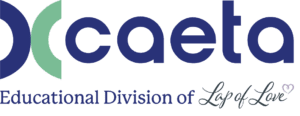The American Animal Hospital Association (AAHA) is a leader in veterinary hospital standards. They are well known in the biz for their devotion to protecting the patient and client experience, while striving to improve clinical veterinary medicine from stem to stern. Hospitals have aligned with AAHA to help them achieve the pinnacle of service through an accreditation status and as of 2021, mobile services who specialize in end-of-life (EOL) care are now able to become accredited as well. This is all quite ground-breaking for not only mobile companies seeking to be recognized by AAHA but for those hoping to anchor EOL work as a subspecialty in the industry.
Who is eligible for End-of-Life Care Accreditation? According to AAHA, either 1. An AAHA-accredited traditional practice with a dedicated department committed to providing EOL care services. The dedicated department may be brick-and-mortar and/or mobile. OR 2. A practice solely dedicated to providing EOL care services. The practice may be brick-and-mortar and/or mobile.
AAHA’s End-of-Life Care Accreditation Program will help veterinary teams elevate services so patients and clients receive appropriate medical and emotional care, positively affecting animal welfare and further strengthening the human-animal bond. Much of the standards in the AAHA accreditation program aim to elevate the delivery of euthanasia. Here is a short list of some of these standards:
~ The practice adheres to the AVMA’s euthanasia guidelines (a mandatory standard)
~ Home euthanasia services are offered.
~ The practice has a room designated for euthanasia.
~ Clients are offered privacy before and after euthanasia is performed.
~ The practice utilizes a communication device for clients to signal the practice team.
~ Patients are allowed to remain with the client for the entirety of the euthanasia appointment.
~ The practice utilizes a system to communicate to the practice team that a euthanasia is in process.
~ The location of euthanasia is documented within the medical record.
~ The practice designates a euthanasia attendant; someone dedicated to the appointment for its entirety.
~ The practice provides a private exit for grieving clients.
The accreditation standards also encourage improvements with controlled substance handling, recommendations for continuing education in euthanasia, and team self-care. The first EOL specialty company to receive accreditation is Caring Pathways, a mobile service with locations currently in Colorado and Virginia. Feedback from the Caring Pathways team about their success includes stronger team communication, better drug storage, and robust euthanasia standard operating procedures for the entire team.
Myself along with the Companion Animal Euthanasia Training Academy (CAETA) is proud to support AAHA in this important accreditation program. Many of the standards pattern CAETA’s 14 Essential Components of Companion Animal Euthanasia. To learn more about AAHA’s End of Life Accreditation Program, visit now.

